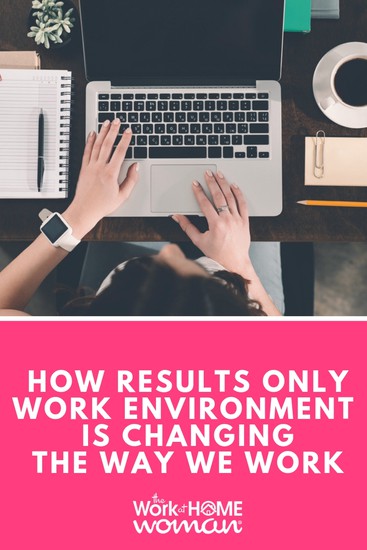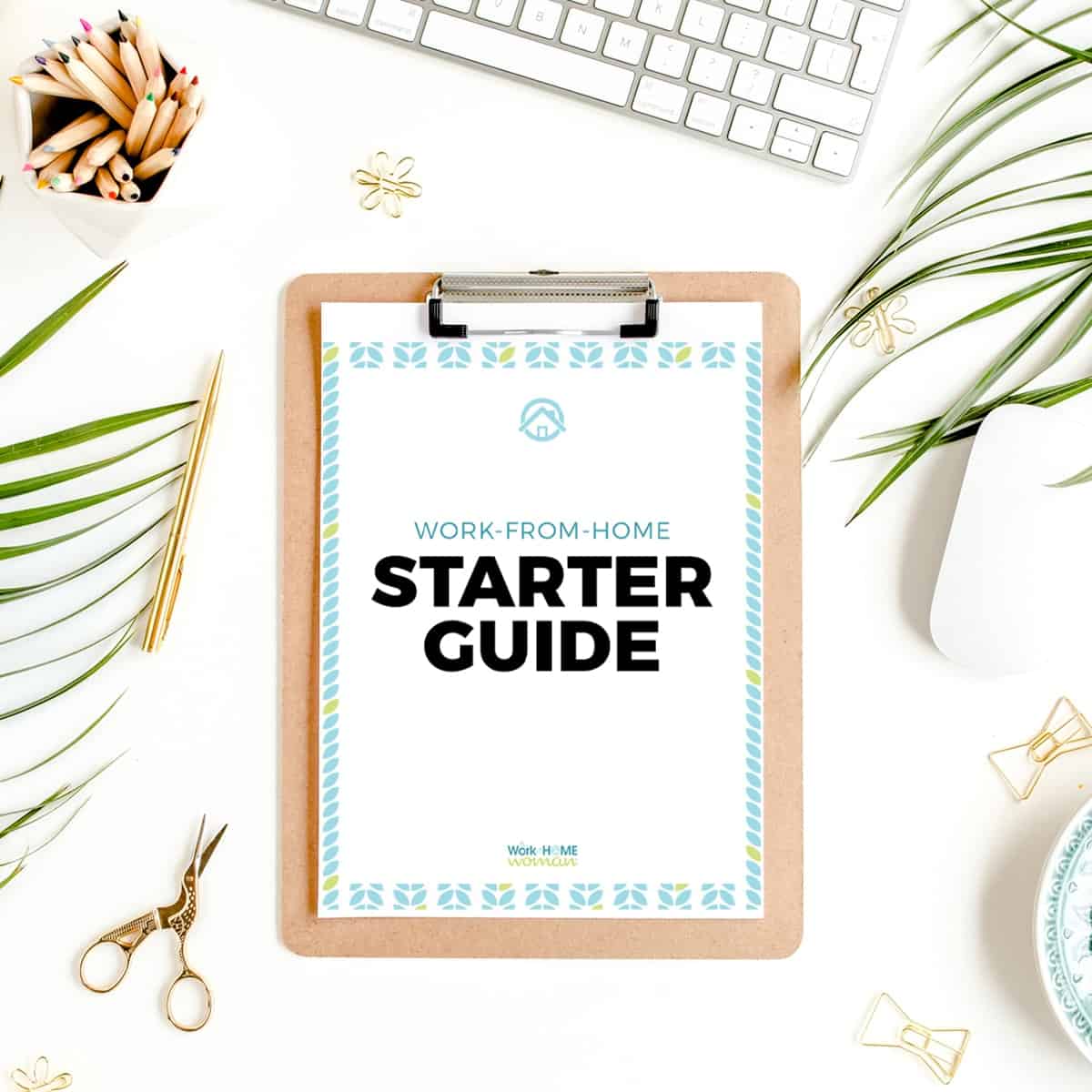There’s a lot of talk these days about this thing called the work-life balance. Traditional companies everywhere brag that employees come first with fun little programs like casual Fridays, no meeting Wednesdays, and company bonding events such as (mandatory) picnics and happy hours. And don’t forget about the anonymous employee survey, designed to solicit your input (because management is so very interested in how you would run things).
 All of this and more is done under the guise that it will make you better at that all-important work-life balance; that you’ll be more fulfilled, more dedicated, and even happy.
All of this and more is done under the guise that it will make you better at that all-important work-life balance; that you’ll be more fulfilled, more dedicated, and even happy.
But let’s face it:
Corporate employers and traditional office-based businesses don’t give a hoot about your work-life balance. They want you to work, and they don’t want to be bothered by that pesky thing you call your life.
Sure, the last decade has seen a significant rise in programs like job sharing, flex-time, telecommuting, and personal time instead of sick days since everyone lies about being sick anyway to take their kids to the dentist, play hooky, or even to avoid the stigmatism of – gasp! – arriving to work late!
The truth is that all of these programs don’t really give you what you want: a life. A WHOLE life; not just a working life with family, sleep, and errands squeezed in between.
The bottom line: work sucks.
Isn’t that why you went into business for yourself? Because you wanted to feel passionate about work; you wanted more freedom to organize your life in a way that works best for YOU. Maybe you work better at night. Perhaps you’re too knackered by the end of the day to exercise, and you’d rather take that jog at 9 am. Maybe you’re not hungry between 12 and 1, and you’d rather eat at 3:00 pm. Maybe – just maybe – you don’t want to commute twice a day on a gas-fumed freeway to spend eight hours with that guy who leers at you over your cubicle and that woman who can’t wait to talk about what happened last night on The Real Housewives of Orange County.
The plain truth is that employers with programs like flex-time and personal time are really saying, “As your boss, I’m still in charge of your life; I’m just begrudgingly letting you leave for a little while. And when you get back, you’d better not admit that your “personal day” was spent at the movies with your kids; it had better have been at something awful and absolutely necessary, like out-patient surgery or an IRS audit. And so you lie. And feel guilty. And for what? Does it make you any better at your job? Or at your life? Of course not.
Chief boss and babysitter …
Even if you’re an employer, working within the traditional, 40-hour work-week system isn’t much better: That brilliance for marketing, uncanny sales savvy or superior drive for great customer service that motivated you to start your own company in the first place has been relegated to that of chief babysitter, arranging the lives of your employees.
If you’re an employer in an office, here’s the million dollar question: how do you know what your employees are doing right now?
Answer: you don’t.
Just because they have their obedient butts in their chairs by 9:00 am and they stare dutifully at a computer screen all day typing is not evidence that they’re working. Because you’re reading this, some small part of you already knows the truth: physical presence alone does not equal productivity. Regular meeting attendance and scribbling lots of notes does not equal productivity. Arriving early, staying late, and eating lunch at the desk DOES NOT EQUAL PRODUCTIVITY. None of those things is what inspired your dream to go into business in the first place, and it still shouldn’t be.
So how do you know who’s pulling their weight? How can you be sure your staff is giving you results and not just face time? If you’ve ever worked in an office you know, there are more ways to look busy than there are ways to actually be busy. Many employees exert more time and energy making up excuses, writing reports, and going to meetings they don’t need to be in than they do accomplishing work. But that’s just the way work is, right? Wrong.
ROWE: Results only work environment …
Enter ROWE, the “Results Only Work Environment.” The traditional workplace is sick, and ROWE is the cure. The problem with the entire, 9 to 5/lunch at noon/10-days-per-year vacation system is that it’s based on an antiquated need from way back in the industrial revolution. When Henry Ford perfected the assembly line, factories were born, and it was essential that workers be physically present in their positions to put the cog in the wheel or the lid on the jar. Because such work was grueling, unions were born and necessarily demanded minimum definitions for breaks, lunchtimes and days off. In the factory setting, standardized schedules made sense.
In today’s globalized, technology-savvy world, people in Detroit are buying car parts from China; cosmetics ingredients are ordered from Sweden, combined in France, packaged in Taiwan and distributed in Idaho. If a project manager has a question for her team, she sends an email. People in Germany have SKYPE conferences with their counterparts in New York. And even for the local business, where would it be without email, text, social media, and a great website? The fact is people just don’t need to be sitting next to one another using a strange apparatus tethered to the wall to communicate anymore; it’s just a habit we’ve gotten into.
It’s time to step out of the industrial age in the way you manage your staff and step into the new millennium.
In a ROWE, you’ll have to get used to results, because that’s all that matters. In a ROWE, time and place have no meaning. NONE. You can work wherever you want, whenever you want. However, you want. Or not. As long as you get your work done. That’s it.
There are no more definitions for time off, sick days, personal days, or even vacation days. No more signing out or clocking in, no more asking your boss like she’s your mommy if you can leave for 30 minutes to pick your son up from school, and you’re so sorry, and you’ll speed the whole way, and you’ll stay late to make up for it.

In a ROWE, you’re the adult, and you know how to manage your work responsibilities as well as your personal ones. In a ROWE, you don’t ask; you just do it.
If you’re the boss in a ROWE, you’d better be prepared, because babysitting is no longer your concern. While that may sound nice, many managers who switched to ROWE suddenly realized how vague their staff goals were. In the ROWE world, managers must be absolutely clear as to what results mean for their team, in specific, quantifiable goals, and isn’t that what the boss really should be doing anyway? Steering the ship, keeping an eye on the compass and arming her troops with clear marching orders?
As a boss, just think how liberating it would be to have permission to not care where your team is and to have the confidence to know that wherever they are, they’re getting the job done. If that scares you, keep reading and see just how successful the ROWE revolution has been.
The genius behind the genius …
Like most brilliant revolutions, ROWE was borne out of a persistent frustration over something that had finally reached its boiling point. Back in 2003, employees at Best Buy Corporation were maxed out, stressed out and unhappy. Productivity was down, and turnover was at an all-time high. Enter, Jody Thompson, then head of Best Buy’s Human Resources. Jody wanted to find out what was really going on, so instead of holding a lot of senior-level staff meetings where the high-ups make decisions about the plebs at the bottom, Jody took it to the masses. She went directly to the offices and teams and asked, “What do you need to be better?” And wherever she went, the answer was resoundingly clear: “We want more control over our time.”
All or nothing …
Jody was insightful enough to realize that you can’t trust someone just a little bit. So either she gave employees the power to be responsible, or she didn’t; there was no middle ground. A series of test pilots were created, where hundreds of Best Buy employees worked under the ROWE concept, with no limits. Some were resistant at first.
Employees were fearful that it couldn’t really be true and that surely if they just took off for the beach or came in at 11, they would be judged. “Oh, nice of you to join us,” someone would say. “Gee, don’t work too hard,” another would quip. And it would all count against you in the end.
This all-too-familiar passive-aggressive office humor is what Jody refers to as, “Sludge.” In a ROWE, Sludge is not tolerated from anyone, including the boss. As Jody says, where you’re going or where you were is, quite frankly, none of anyone’s business. As long as you’re getting your work done, what’s it to them.
In her book written with partner Cali Ressler, Why Work Sucks and How to Fix It, Jody suggests that the next time you come to work late and some smart-aleck quips, “Oh, thanks for showing up,” resist the urge to give excuses like, “Oh-I’m-SO-sorry-there-was-this-huge-accident-and-traffic-was-HORRENDOUS-and …” Don’t bother lying. Simply smile and say, “Was there something you needed?” And you will find, as Jody says, that the lovely co-worker who couldn’t resist sludging you didn’t actually need anything at all; they were just slinging sludge, because they had to be there at 9:00 am, and they hate it, so what makes you so special.
In a ROWE, there’s none of that because you can be anywhere you want.
After the first year of ROWE, Best Buy’s productivity was up dramatically, and employee turn-over was down. People were re-connecting with their families, they were exercising and relaxing and cooking and yes, WORKING. Even employees who were previously unmotivated found inspiration in their new, freer lifestyle. Once the shackles of 9 to 5 were broken, people found their creativity to solve problems, to submit ideas, and to be a whole person, and that benefits every aspect of life, including work.
ROWE goes rogue …
Like so many revolutions, ROWE was not to be contained. As the movement grew, Jody Thompson left Best Buy and joined forces with partner Cali Ressler to found CultureRx, a company dedicated to abolishing the outdated system of the 40-hour work week and liberating America’s workforce, one company at a time.
Today ROWE has transformed over 300 companies and liberated 10,000 employees across the country, and their client base continues to grow in the United States and across Europe.
Yeah, but …
Won’t employees slack off?
Won’t they take advantage?
Jody’s answer: they already are; you just don’t know it. One of the wonderful things about a ROWE is that it has the remarkable ability to reveal those who aren’t pulling their weight. Company lay-abouts can no longer hide behind their computer screens looking busy as they log into Facebook and play Mafia Wars in between filling out their reports. There are no more mandatory meetings where someone looks busy taking notes when they’re really writing their grocery list. There’s no longer any advantage to hovering over the coffee machine avoiding your desk because you could be spending time with your kids, or writing that novel, or taking a nap with your free time, so why waste a minute of your work-time hovering at the office?
ROWE isn’t just for the good of the employees, either. Managers in a ROWE had better get crystal clear on what the company’s goals, deadlines, and priorities are because that’s all that matters: communicating measurable goals to the team and then letting them go to do it. Consistently people who transitioned to ROWE out-performed themselves and productivity shot up. They actually worked better together as a team, arranging amongst themselves who needed to be at what presentation or when face-to-face meetings really would be productive.
Conclusion
The entire philosophy of ROWE is simple: the work must get done. You’re an adult, and you know best how to do it. Period. Are you confident enough in your staff to go ROWE? Are you confident enough in yourself and what you want for your business?
ROWE is the way of the future. There’s no going back. And that’s a good thing.
Find out more about transitioning your company to a ROWE by visiting CultureRx at www.gorowe.com. Stephanie Maier is a journalist and international consultant who’s lived and worked in twelve countries. She’s been avoiding traditional work her whole life.






Could ROWE work for someone in the hospitality field?